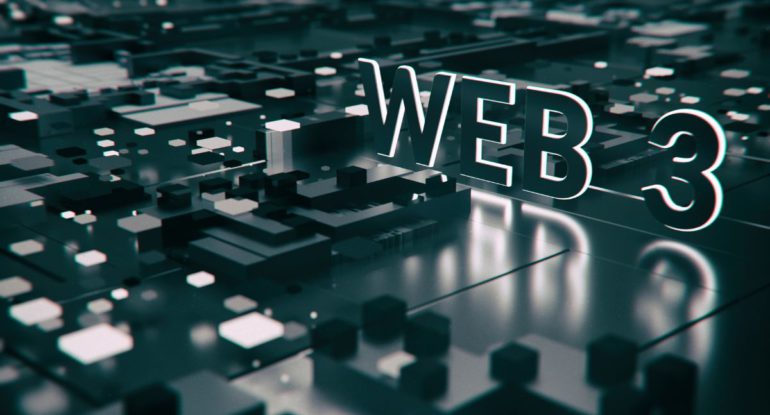Top 10 Impacts of Web3 On Traditional Industries Through Decentralization

The third generation of the internet has had severe impacts of Web3 on traditional industries in once unimaginable ways. Decentralization is at the core of this new technology, and it has the potential to disrupt and transform industries from finance and art to healthcare and education.
One of the most significant impacts of Web3 is in the financial industry. Decentralized finance (DeFi) protocols, enabled by blockchain technology, allow for peer-to-peer lending, borrowing, and trading without intermediaries. This can disrupt traditional banking and investment models by giving users more control over their funds and enabling them to earn higher returns. Furthermore, decentralized systems have the potential to make financial services more accessible to individuals who were previously excluded from the traditional banking system.
The rise of Web3 and the emergence of decentralized systems have brought about a new era of disruption in various industries. From finance and art to education and healthcare, Web3 is transforming the way traditional industries operate, introducing new business models and revenue streams.
New @theindexshow episode! Host @afkehaya joins @nzeimer, author of Education in the Digital Age and founder of @hsdotcredit. A great conversation on #Web3, AI, and how open source technologies is transforming education.
🎧 Listen and subscribe now! https://t.co/ahPIY75pBx
— The Index Podcast (@theindexshow) October 24, 2022
Here are the top 10 ways how decentralization is disrupting established markets:
- Decentralized Finance (DeFi): Web3 is transforming the financial industry by enabling decentralized finance (DeFi) protocols that allow for peer-to-peer lending, borrowing, and trading without intermediaries. This disrupts traditional banking and investment models by providing users with more control over their funds and enabling them to earn higher returns.
- Digital Art: The emergence of non-fungible tokens (NFTs) and blockchain-based marketplaces for digital art has revolutionized the art industry. This decentralized approach enables artists to monetize their work without intermediaries and ensures the authenticity and provenance of the art.
- Supply Chain Management: Web3 is transforming supply chain management by providing a transparent and decentralized ledger of all transactions, enabling greater traceability and efficiency in the supply chain.
- Cybersecurity: Decentralized security protocols based on blockchain technology are more secure and less vulnerable to hacking than centralized systems. This has the potential to disrupt traditional cybersecurity models, providing greater protection for individuals and organizations.
- Education: Decentralized education systems enable greater access to education and create new business models for educators. Web3-enabled platforms can facilitate peer-to-peer learning and credential verification, disrupting traditional education models.
- Healthcare: Decentralized healthcare systems based on blockchain technology are providing greater security and transparency in medical data sharing and management. This disruption has the potential to transform the healthcare industry, improving patient outcomes and reducing costs.
- Digital Identity: Web3 is enabling self-sovereign identity, providing individuals with control over their digital identity and data. This has the potential to disrupt traditional identity verification models and enable greater privacy and security for users.
- Social Media: Decentralized social media platforms disrupt traditional models by providing greater control and ownership of user data. This has the potential to transform the advertising industry and enable greater privacy and security for users.
- Real Estate: Web3-enabled platforms are disrupting traditional real estate models by enabling peer-to-peer property transactions and reducing the need for intermediaries. This disruption has the potential to transform the real estate industry, making it more accessible and affordable for individuals.
- Governance: Web3 is enabling decentralized decision-making through the use of DAOs (decentralized autonomous organizations). This has the potential to disrupt traditional governance models and enable more participatory and democratic decision-making processes.
Also, read – How Twitter And Web3 Are Giving More Power To Social Media
In conclusion
Web3 and decentralized systems are transforming traditional industries, disrupting established markets and creating new business models and revenue streams. From decentralized finance (DeFi) and digital art to supply chain management and cybersecurity, Web3 is empowering individuals and organizations with greater control over their assets and data. Decentralized systems are also enabling greater transparency and efficiency in various industries, from healthcare and education to real estate and governance.
As Web3 continues to evolve and mature, it has the potential to transform many more industries and change the way we live and work. However, this transformation is not without its challenges. Decentralized systems present new regulatory and governance challenges and concerns around the energy consumption of blockchain technology. Nevertheless, the potential benefits of Web3 and decentralized systems are enormous, and it is important that we continue to explore and innovate in this space.
As businesses and individuals navigate this rapidly evolving landscape, staying informed and up-to-date on the latest developments in Web3 and decentralized systems is crucial. By understanding the potential benefits and risks of these technologies, we can better prepare ourselves for the future disruptions and opportunities. Ultimately, Web3 has the potential to empower individuals and communities and create a more equitable and decentralized future.



























































